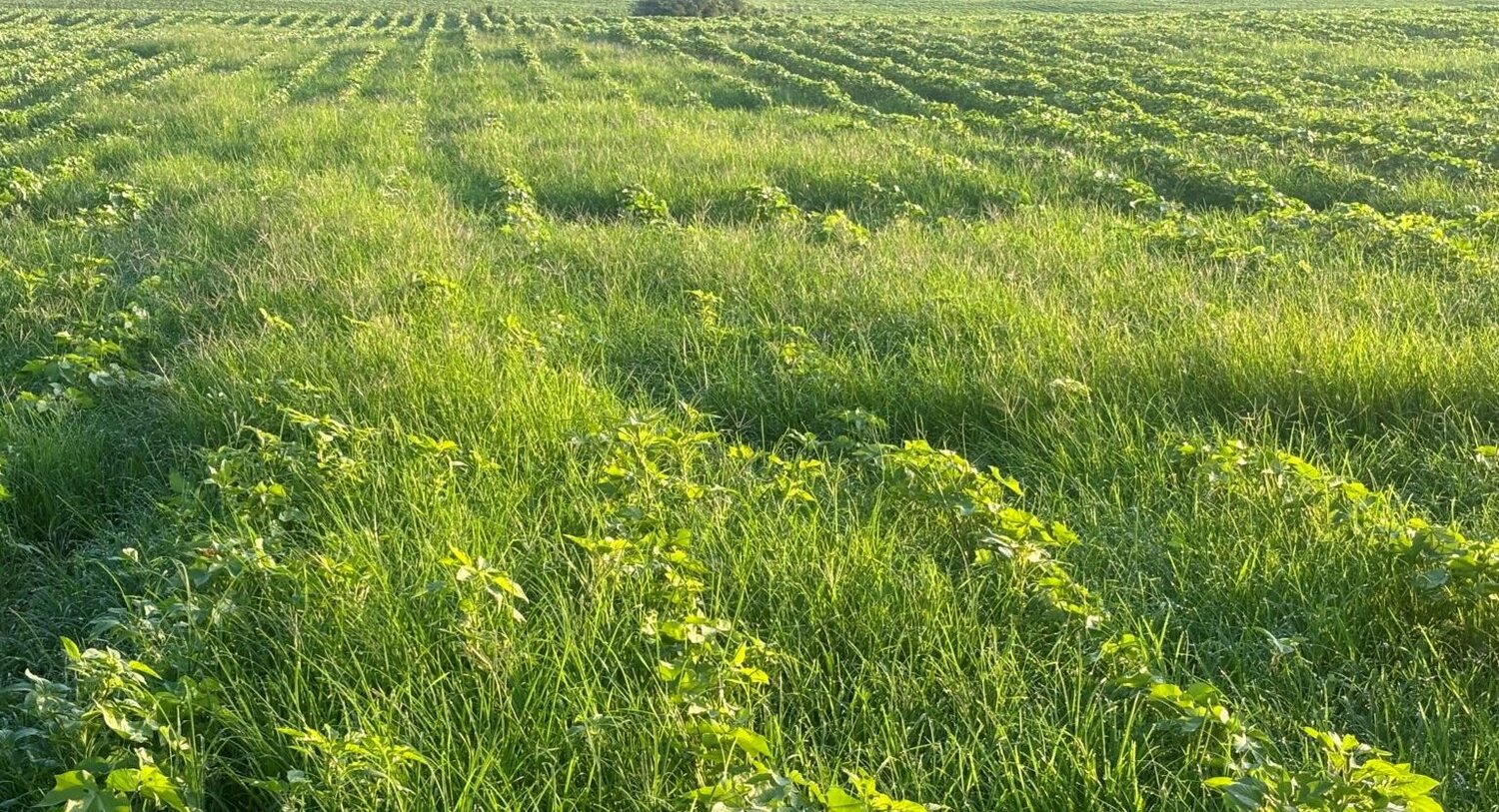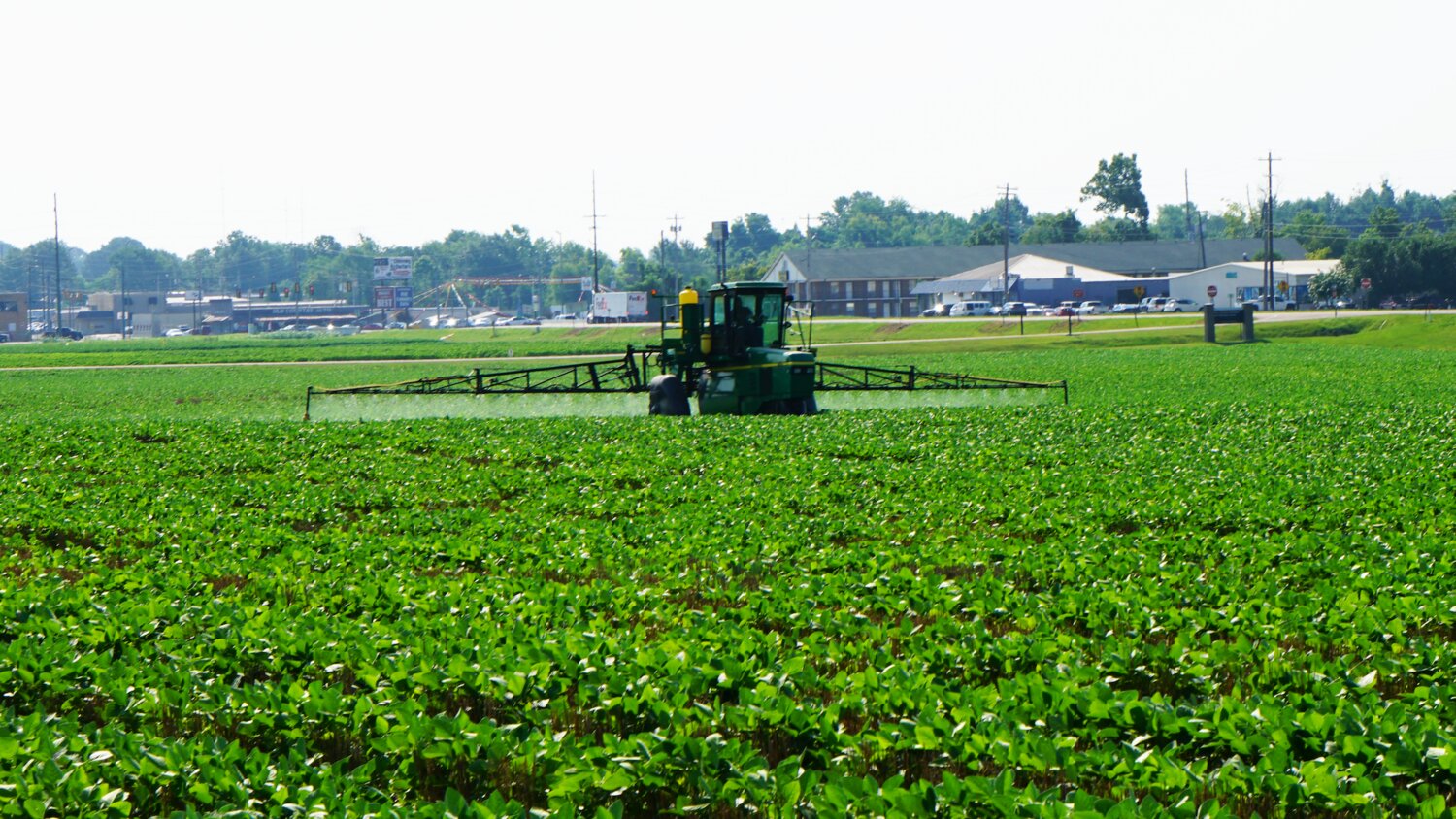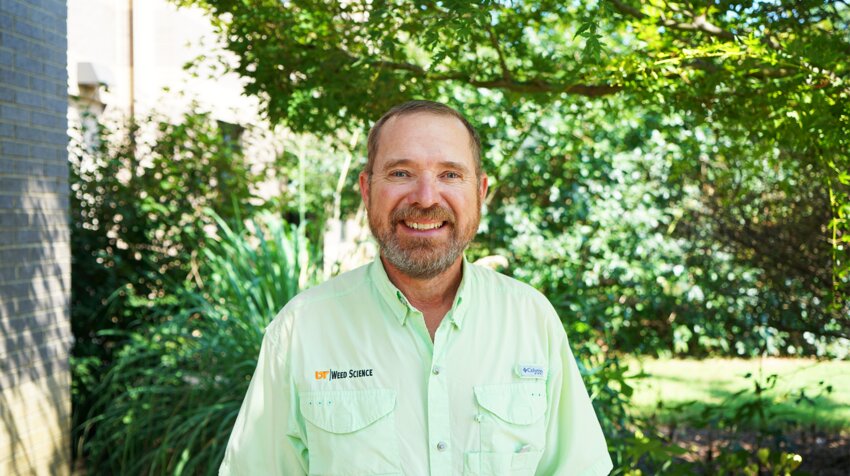Milan No-Till Field Day will share latest weed-control solutions
Goosegrass, junglerice and more hinder row-crop production
Weed control is an essential component of no-till agriculture, allowing row crop producers to eliminate unwanted plant pests that could impact yield. During the 33rd Milan No-Till Field Day on Thursday, July 25, from 8 a.m. to 1 p.m. at the AgResearch and Education Center at Milan, agricultural experts from across the region will provide the latest research-based weed control solutions.
The University of Tennessee Institute of Agriculture (UTIA) will partner with the University of Georgia for the tour, providing updates and predictions on agricultural production across the Mid-South.
Participants will have the opportunity to learn more during the tour “Herbicide-Resistant Weed Management” held at 11 a.m. Larry Steckel, row crop weed specialist with the University of Tennessee Institute of Agriculture (UTIA), will partner with Taylor Singleton from the University of Georgia for the presentation.
“We have seen serious infestations of goosegrass, junglerice, barnyardgrass and more, especially in soybean and cotton fields,” says Steckel. “Many producers think it is because these plants are resistant to glyphosate and other pesticides, but that is only part of the challenge.”
Dicamba, often used to control Palmer amaranth, can greatly inhibit the effectiveness of other herbicides, particularly if combined in a tank or sprayed consecutively in the same field over a short period of time. For many producers, frequent rainfall events have even washed herbicides off plant leaves or delayed application altogether, further limiting weed control.
“Each growing season has new challenges,” says Steckel. “One of our missions at UTIA is to ensure producers can continue growing crops using no-till agriculture. I encourage anyone in the area struggling to manage weeds to come out and explore our recommended solutions to help you protect your plants.”
In addition to discussing weed control, the No-Till Field Day will include a presentation spotlighting recent pesticide restrictions and the history behind these limitations.
Attendees will have the opportunity to learn more during the tour “Update on Pesticide Labels and History of the Endangered Species Act (ESA)” held at 8 a.m. and 12 p.m.
“Our colleagues in Georgia have done quite a bit of work on pesticide use limitation areas impacted by endangered species,” says Kim Brown, Extension specialist with UTIA. “Producers need to be aware of how ESA changes are going to influence pesticide use.”
The ESA was passed in 1973 to protect plant and animal species in the United States, including regulating when, where and what type of pesticides are applied. Since these policies are essential for the health of local ecosystems, producers are responsible for adhering to instated guidelines.
“Dicamba in-crop use has already been called into question, and this is not the only pesticide to experience changes these past few months,” says Brown. “Pesticides must be available for use in no-till crop production, but only without harming at-risk species across the state. Our tour will shed important light on this controversial topic and alleviate confusion on what producers should do going forward.”
Milan No-Till Field Day first began in 1981 as a way to teach producers about the benefits of no-till farming over traditional tillage. Today, it continues to attract thousands of people from across the nation interested in improving soil conservation and agricultural production. Certified Crop Adviser and pesticide recertification points will be offered for attendees.
The AgResearch and Education Center at Milan is located at 3A Ledbetter Gate Road in Milan, Tennessee. Sponsorships and exhibitor spots are currently being offered. Contact LesLee Smelser at 731-686-7362 for more information.
The University of Tennessee Institute of Agriculture comprises the Herbert College of Agriculture, UT College of Veterinary Medicine, UT AgResearch and UT Extension. Through its land-grant mission of teaching, research and outreach, the Institute touches lives and provides Real. Life. Solutions. to Tennesseans and beyond. utia.tennessee.edu.











